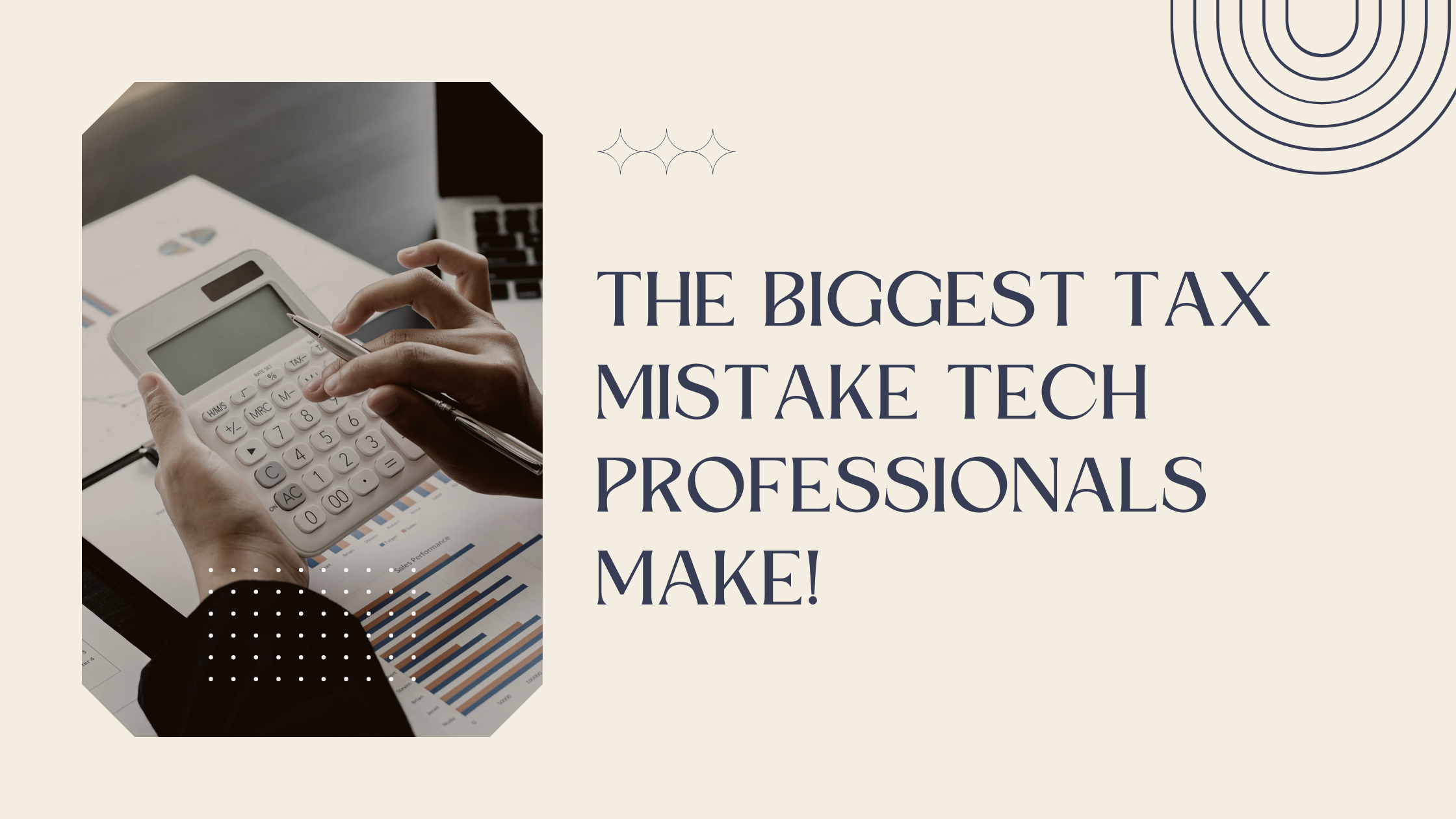Should I Withdraw My 401(k) Early? Pros & Cons You Need to Know!
True Root Financial is a financial advisor and financial planner based in San Francisco, CA. We serve clients across the globe.
Are you thinking about withdrawing from your 401(k) before age 59½? While it might seem like a quick solution to urgent financial needs, it’s crucial to understand the potential consequences. Early withdrawals come with a hefty price tag of penalties, taxes, and lost growth opportunities that can significantly impact your future retirement savings.
If you are a tech professional interested in learning how we can help you claim your financial independence by investing wisely, minimizing taxes and maximizing your equity compensation, please book a no obligation call here.
Before you make any decisions, weigh the immediate relief against the long-term costs. Accessing your 401(k) early could affect your financial future in ways you might not realize.
Key Takeaways:
- Early 401(k) withdrawals come with penalties and taxes
- Some situations, like hardship or divorce, allow penalty-free withdrawals
- Taking money out early can impact your future retirement savings
- Consider alternatives like Converting a 401(k) to an IRA or 401(k) loans.
What is the 401(k) Early Withdrawal Penalty?
Before diving into the pros and cons, let’s clarify the cost of early withdrawals. When you withdraw funds from a 401(k) account before age 59½, the IRS usually imposes a 10% early distribution penalty. This means that if you take out $10,000, you may owe $1,000 in penalties plus income taxes. State taxes may apply as well, which can further reduce the amount you keep.
Can You Make an Early 401(k) Withdrawal?
Yes, early withdrawals are possible, but the money may be subject to penalties and taxes. However, in certain situations, the IRS allows penalty-free withdrawals, such as for specific hardship cases or under certain exemptions. It’s wise to check with your plan provider to see if you qualify for these exceptions, as some plans have unique rules or restrictions.
Pros of Withdrawing Early from Your 401(k)
Immediate Access to Cash
- Emergency Liquidity
Early access to your 401(k) can be crucial if you’re facing an emergency and have no other options, such as medical bills, unexpected home repairs, or job loss. While it’s generally advised to avoid tapping into retirement funds, an early withdrawal might feel necessary in truly urgent situations.
- An Alternative to High-Interest Debt
If you’re considering high-interest loans, using your 401(k) may be more affordable in the short term, even with penalties. For example, tapping your 401(k) might save you from paying 20% or more in credit card interest.
Potential Investment Opportunities
- Opportunity for High-Return Ventures
In some cases, an early withdrawal can serve as seed money for investments with high potential returns, such as real estate in the competitive San Francisco market or a promising startup venture. However, market risks are high, and there are no guarantees.
- Funding Education or Career Growth
Some individuals use 401(k) funds to pay for education, certifications, or skills training. This could benefit future earnings, although it’s crucial to assess if the expected payoff outweighs the penalties and taxes.
Cons of Withdrawing Early from Your 401(k)
Penalties and Tax Costs
- Federal and State Penalties
In addition to federal penalties, many states impose their own taxes. In California, for instance, you could be subject to additional state taxes on early withdrawals. The IRS’s 10% penalty alone could mean handing over $1,000 from a $10,000 withdrawal, plus state taxes.
- Boosted Taxable Income
Withdrawn amounts count as taxable income, which could potentially push you into a higher tax bracket, increasing your overall tax liability. A significant early withdrawal could mean losing a large portion of the funds you intended to access.
Missed Compound Growth and Future Savings Loss
- Lost Compounding Benefits
Compounding is a critical advantage of retirement accounts, and early withdrawals interrupt this growth. For example, withdrawing $10,000 at age 30 could reduce your account balance by over $50,000 by retirement age due to lost compounding.
- Impact on Retirement Goals
Consistently withdrawing from your retirement account early can make it challenging to meet your future goals, especially in high-cost areas like San Francisco. Each withdrawal chips away at the amount you’ll have available to retire comfortably.
Long-Term Psychological Impact
Once you withdraw from your 401(k) for short-term needs, it might be tempting to do so again, creating a cycle that can undermine your long-term financial discipline. Keeping retirement funds “out of sight, out of mind” is often beneficial for ensuring steady growth.
Penalty-Free Exceptions for Early 401(k) Withdrawals
There are circumstances in which the IRS waives the 10% penalty:
Hardship Withdrawals
If you face an immediate and significant financial need, you may qualify for a hardship withdrawal, which can be penalty-free. Situations that may qualify include covering medical expenses, college tuition, or payments to avoid foreclosure. Note, however, that income taxes still apply, and certain plans may restrict your ability to contribute for six months afterward.
Additional Exceptions
The IRS allows penalty-free withdrawals in specific cases, such as:
- Disability or terminal illness.
- Qualified birth or adoption expenses (up to $5,000).
- Payments to beneficiaries after your death.
- Military reservists called to active duty.
- Substantially equal periodic payments taken over five years or until age 59 1⁄2 (whichever is later).
- If a court’s qualified domestic relations order (QDRO) requires splitting your 401(k) in a divorce, the withdrawal to divide funds with your ex may be penalty-free.
- Additionally, the Secure 2.0 Act (beginning in 2024) permits emergency distributions of up to $1,000 per year without penalties, provided the amount is repaid within three years.
Other Options to Consider Instead of an Early 401(k) Withdrawal
401(k) Loans
A 401(k) loan lets you borrow against your retirement funds without facing the 10% penalty or income tax, provided you repay it. However, if you leave your job with an outstanding loan balance, it may convert into an early withdrawal and be subject to penalties.
Using Other Savings Accounts or Income Sources
- Ideally, having an emergency fund outside of retirement accounts can provide the flexibility to cover unexpected expenses without impacting retirement savings.
- For tech professionals, consulting or freelance projects can provide extra income to cover short-term needs, allowing retirement accounts to remain untouched.
401(k) to IRA Conversions
By rolling a 401(k) into an IRA, you may avoid the 10% early withdrawal penalty in some cases, like first-time home purchases or educational expenses. Converting a 401(k) to an IRA could be a valuable option if you need funds and want to limit penalties.
Is an Early Withdrawal Worth It?
Taking an early withdrawal from your 401(k) is a decision with substantial immediate and future implications. It’s essential to evaluate the costs of penalties, taxes, and foregone investment growth against the necessity of accessing funds. For those in high-earning fields, especially tech professionals with career growth potential, a temporary financial setback may be best managed through alternative means. Before You Act, Consider Consulting a Financial Advisor.
Next Steps For You
Unlock the insights you need for smarter financial choices. Let our experts dive into your unique financial picture to guide you toward the best decision for today and tomorrow’s security. Ready to take control? Book your call below!










Leave a Reply
Want to join the discussion?Feel free to contribute!